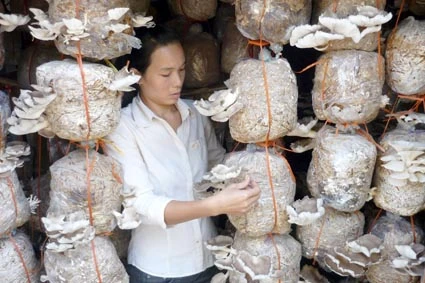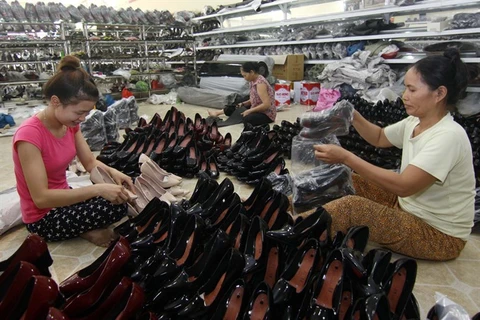Hanoi (VNA) - In experts’ view, the transfer of households to enterprises is necessary to standardise and avoid the current abuse. However, the problem is that it is difficult to transfer all of them immediately.
Inequality, ambiguity?
In the research "Vietnam private economy: Productivity and prosperity", economist Le Duy Binh said that the business household model is a particular preference of starting a business, especially for those who seek to earn a living.
He said the model is popular partly because it can be easily registered at district- and city-level authorities with extremely simple procedures.
In addition, business households are not strictly bound by regulations and requirements on social insurance, conditional business lines, environment, and firefighting.
"Many business households are taking advantage of the lack of clarity from incentives and advantages for this sector," Binh said.
Expressing his view, Lawyer Truong Thanh Duc, Chairman of the Board of Members of Basico Law Company, said that converting business households into businesses is necessary to standardise the nature of professional business units.
In the long run, this aims to iron out differences between the two business sectors, as well as inequality between types of businesses in labour, invoices, accounting and tax payment.
“Maintaining business households alongside enterprises is an inequality, a legal ambiguity,” he said.
Elaborating on the issue, Economist Nguyen Thanh Binh from the Ministry of Planning and Investment’s Academy of Policy and Development said that this is a good thing because several households are now larger than many small- and medium-sized enterprises (SMEs).
“It is advisable that households should operate under the type of SMEs, making it easier for the State to manage taxes, thus benefiting both the State and businesses,” Binh said.
As for Economist Cao Si Kiem, many producers do not have the need to upgrade themselves into the business level because they are satisfied with the current situation. However, he warned, as the society progresses, goods need to be of higher quality with the use of modern technology, and such households are easily abolished.
According to him, whether they want to become businesses or not, it is a must to create a driving force for the country’s development and integration.
100 percent instant transformation is infeasible
Confirming that the policy of encouraging households to switch into businesses is right, Binh said it could not be done through administrative orders.
It is difficult and even against the law to force them to become companies because individuals are entitled to earn a living.
"They could do business as individuals instead of households because it is a basic human right," Binh warned.
Lawyer Truong Thanh Duc said the Law on Supporting SMEs 2017 stipulates that business households that turn into enterprises will be exempted from business registration fee and that for initial information provision (about 400,000 VND), proving that the State wants to facilitate this transition.
Tran Thi Thuy Loan, a merchant in Hanoi’s Gia Ngu street (Photo: VietnamPlus)
According to the World Bank’s Doing Business report 2019, Vietnam’s market penetration index ranked 106th, which Binh said has remained rather poor and unchanged for many years.
He said the process will have to come with many conditions, ensuring that it will not cause big changes but have a roadmap to gradually turn business households into businesses in the next 5 - 10 years.
Vietnam has considered adding regulations of household business to the revised Law on Enterprises that is set to be submitted to the National Assembly for approval in October.
Vice Chairman of the National Assembly’s Economic Committee Nguyen Ngoc Bao said the country has an estimated more than 5.1 million of household businesses.
They employ around 8 million people nationwide and contribute nearly 30 percent of the country’s Gross Domestic Product (GDP). However, it makes up only 1.6 percent of the State budget, he added./.
























